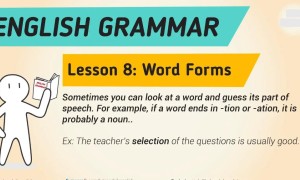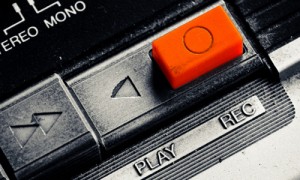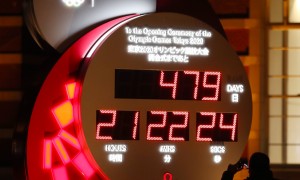直译英文让你贻笑大方
在一次聚会,美国来的 Jason 问我 “How are you?” 由于我英文不太好,于是求助身旁的 Nick。 Nick 小声告诉我:「人家在问『怎么是你?』」我顿时觉得这个 Jason 真没礼貌,难道我不该出现吗?于是我没有回应。 Jason 觉得奇怪,又问我 “How old are you?” Nick 帮我翻译:「他说『怎么老是你?』」我简直不敢相信这个美国人竟然对我这么不友善。
上述例子中 Nick 就是典型的中式英文 (Chinglish) ,他把 are 直译为「是」,old 直译为「老」,结果让 Jason 的原意完全变调!
我英文不好
你一定常常听到这句话 “My English is so poor.” 事实上,poor 这个字太严重了!要表达英文不太好,一般我们会说 “My English is not very fluent.”
I’m nervous about presenting in English in public because my English isn’t too fluent.
我对于用公开用英文报告感到很紧张,因为我的英文程度很一般。
给你
买东西付钱时,或是结帐完,你不会听到 “give you”,而是 “here you are” 或 “there you go”,意思就是请拿去。如果在美国,店员通常还会加上一句 “Have a good one”,意思并不是称赞你买了一个好东西,而是「祝你有美好的一天」。

A: 49.50, please.
A: 一共是49块5,麻烦你。
B: There you go.
B: 在这里。
A: Thanks. have a good one.
A: 谢谢,祝您有美好的一天。
上路
「出发上路」不是 up the road,而是 hit the road,或是更口语一点:Let’s roll!。
A: Dad, when are we gonna hit the road?
A: 爸,我们何时上路?
B: Right now. Let’s roll!
B: 就现在,出发吧。
加油
给汽车加油并不是直译为 add oil,而是用 fill up;给某人加油、鼓励则是 cheer someone up。无论如何,「加油」二字只是中文一种形象化的表述方式,如果直译成 add oil 外国人是听不懂的!
Before we hit the road, I need to fill up my car first.
在我们上路前,我得先去把车加满油。
Bella is always there to cheer me up when I’m down.
Bella 总是在我低落时给我鼓励。
好久不见/最近好吗
long time no see 是一个弄巧成拙的用法,正确的说法应该是 “It’s been a while” 或 “How have you been?”。不过老外也已经能理解 long time no see 了,可见直译式地错误英文是多么普遍 (笑)。
A: Hi, Hans! It’s been a while. How have you been?
A: 嗨,Hans!好久不见,你最近好吗?
B: I’ve been doing great.
B: 我最近很好。
进步很多
要表达进步很多,与其生硬地说 progress a lot,倒不如说 have come a long way;同理,要说还有很多进步空间,可以说 still have a long way to go。
A: You’ve come a long way in your math. Your grades went from an “F” to a “B+.”
A: 你数学进步很多,你的成绩从 F 进步到 B+了。
B: Yes, but my teacher said I still have a long way to go.
B: 是阿,但我的老师说我还有很多进步空间。







